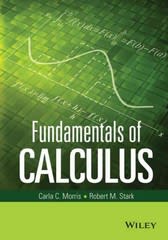Question
1- Why is it necessary to estimate the standard error when a t statistic is used? 2- Several different factors influence the value obtained for
1- Why is it necessary to estimate the standard error when a t statistic is used?
2- Several different factors influence the value obtained for a t statistic. For each of the
following, describe how the value of t is affected. In each case, assume all other factors are held constant.
a- What happens to the value of t when the variability of the scores in the sample increases?
b- What happens to the value of t when the number of scores in the sample increases?
c- What happens to the value of t when the difference between the sample mean and the hypothesized population mean increases?
3- Why is a t-distribution generally more variable than a normal distribution?
4- Describe the general characteristics of a research study for which an independent measures t-test would be the appropriate test statistic.
5-What happens to the value of the independent measures t statistic as the difference between the two sample means increases? What happens to the t value as the variability of the scores in the two samples increases?
6- One sample has SS = 63 and a second sample has SS = 45.
A- Assuming that n = 10 for both samples, find each of the sample variances and
then calculate the pooled variance. What do you notice about the pooled
variance?
B- Now assume we have n = 10 for the first sample and n = 16 for the second
sample. Find each of the sample variances and then calculate the pooled variance. What do you notice about the pooled variance?
7- For each of the following, indicate the appropriate hypothesis test (one-sample z-test, one-sample t-test, independent-measures t-test, or dependent-measures t-test). If your response is dependent-measures t-test, indicate the "flavor" of the dependent measures t-test.
a- A study measuring differences in attitudes about morality among Democrats and Republicans
b- A study testing whether night-shift workers sleep the recommended 8 hours per day
c- A researcher examines the effect of relaxation training on test anxiety. One sample of subjects receives relaxation training for three weeks. A second sample serves as a control group and does not receive the treatment. The researcher then measures anxiety levels for both groups in the test taking situation.
d- A different researcher also conducts a study involving relaxation training. Baseline levels of test anxiety are recorded for a sample of subjects. Then all
subjects receive relaxation training for 3 weeks and their anxiety levels are
measured again. e. In a test anxiety study, two samples are used. Subjects are assigned to groups so
they are matched for self-esteem and grade-point average. One sample receives relaxation training for three weeks and the second serves as a no-treatment control group. Test anxiety is measured for both groups at the end of three weeks.
8- Explain the difference between a matched subjects design and a repeated measures design.
9- The values listed below are the obtained values for a t-statistic. What is your decision for each if df = 36 and = .05 for a two-tailed test.
a- tobt = 2.050
b- tobt = 1.680
c- tobt = 2.834
d- tobt = -3.030
10- State
a- One-sample t-test, two tailed test, = .05, n = 12
b- Z-test, two-tailed, = .01
c- Independent measures t-test, two-tailed, df in each group is n = 12, = .01
d- Dependent measures t-test, one-tail, = .05, nD = 17
11- While researching lifestyle changes to improve heart health, you come across a research article reporting that the average American consumes about 2700 calories per day ( = 2700). You come across another article that refutes this, stating that a sample of Americans consumed significantly less than this mean on average, t(50) = 2.993, p < .05, r2 = 0.15. Assuming this test was a one-sample t-test, answer the following questions:
a- Is this a significant effect?
b- What is the proportion of variance for this effect?
12. Find the number of subjects in the entire study based on the research design:
a- A researcher conducts an independent-measures study comparing two
treatments and report the t statistic as t(30) = 2.085. How many individuals
participated in the entire study?
b- A researcher conducts a one-sample study comparing a sample mean to the
population mean. If the researcher reports the t statistic as t(25) = 4.57. How
many individuals participated in the entire study?
c- A researcher performed a matched-subjects design and reports the t statistic as
t(23) = 4.53. How many individuals participated in the entire study?
the critical values given the following conditions.
d- A researcher conducts a dependent-measures study comparing two treatments and report the t statistic as t(36) = 1.89. How many individuals participated in the entire study?
Step by Step Solution
There are 3 Steps involved in it
Step: 1

Get Instant Access to Expert-Tailored Solutions
See step-by-step solutions with expert insights and AI powered tools for academic success
Step: 2

Step: 3

Ace Your Homework with AI
Get the answers you need in no time with our AI-driven, step-by-step assistance
Get Started


